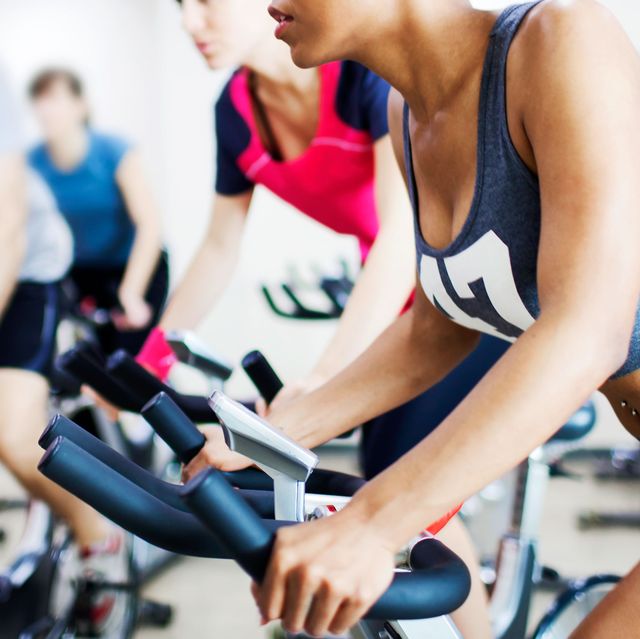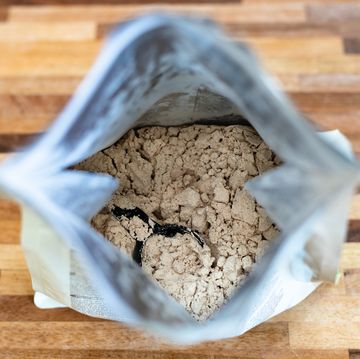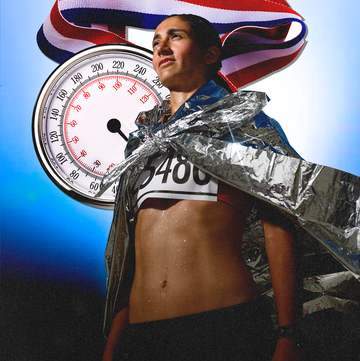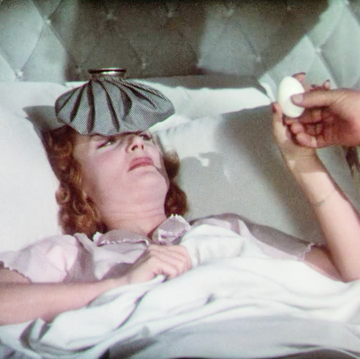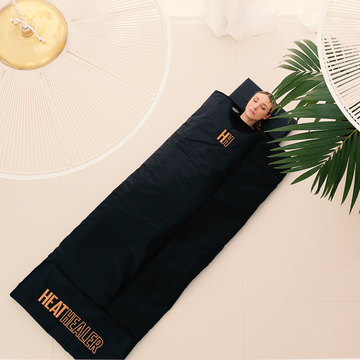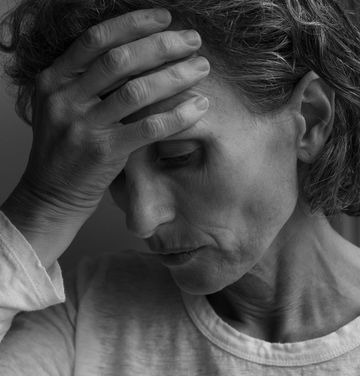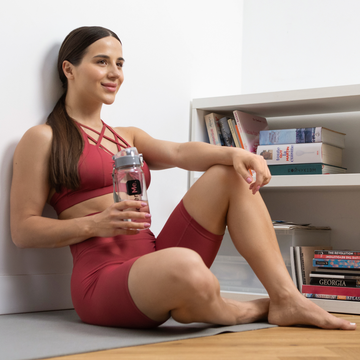Spinning can be a hell of a workout, one reason why it's daunting for newbies (and challenging for regulars too). But there may be more to fear than sweating your butt off, according to an April report published in the American Journal of Medicine, which was recently featured in the New York Times.
In the report, four doctors from Westchester Medical Center in Valhalla, New York, document several cases of patients who were diagnosed with rhabdomyolysis, or "rhabdo," a rare but life-threatening condition that occurs when you're brand new to an activity and work out too hard. This causes the body to create too much heat, which damages the muscles and causes them to leak their contents into your bloodstream. Unlike the tiny muscle tears you endure during typical workouts, which cause initial muscle soreness, then get repaired and ultimately leave you stronger, rhabdo can overtax your kidneys and threaten your life.
Spinning was the common thread among the cases detailed in the report, which included two 33-year-old women and a 20-year-old man. Each had participated in intense indoor cycling for as few as 15 minutes several days before reporting their symptoms, which can range from mild muscle soreness and swelling to fatigue, nausea, vomiting, and organ damage, plus brown urine or low urine output. (If the symptoms above occur in tandem, and you've recently taken an indoor cycling class, call your doctor pronto. While your symptoms could be unrelated to your workout, it's best to seek treatment promptly, just in case.)
The authors end their report by calling for new cyclers to be schooled on how to gradually increase the speed at which they pedal and time in the saddle. Of equal importance is staying hydrated while you spin and, interestingly, avoiding the non-steroidal anti-inflammatory (NSAID) drugs like aspirin, ibuprofen, and naproxen you might otherwise take to soothe sore muscles. (Those drugs are processed by the kidneys, which could be overtaxed if muscle leaking occurs.)
It's important to note that although the report mentions 46 other documented cases of rhabdo linked to spinning, and all but four of those cases involved first-timers, the condition is still rare. There have only been a couple dozen documented cases of spin-related rhabdo among the millions of rides taken every year at indoor cycling studios.
That said, indoor cycling isn't the only activity that can set the stage for this condition: Remember, overexertion is the trigger, and you're most susceptible when you're new to an activity — even if you're fit from doing other activities.
Experts who spoke to the New York Times further stressed the importance of easing into new kinds of exercise before you push your body to its limit. That means peddling at a moderate pace on a stationary bike before clipping in for a spin class at a studio such as FlyWheel but also lifting a little something before going gung-ho at CrossFit.
It all comes down to knowing your own limits: If an instructor encourages you to amp up the intensity, but you're already feeling a serious burn, trust your body, and keep things status quo, NBD.
Get all the ~FiTsPiRaTiOn~ directly in your feed. Follow Facebook.com/CosmoBod.
Follow Elizabeth on Twitter and Instagram.

Elizabeth Narins is a Brooklyn, NY-based writer and a former senior editor at Cosmopolitan.com, where she wrote about fitness, health, and more. Follow her at @ejnarins.
